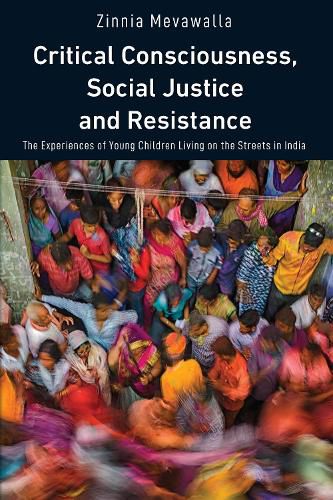Readings Newsletter
Become a Readings Member to make your shopping experience even easier.
Sign in or sign up for free!
You’re not far away from qualifying for FREE standard shipping within Australia
You’ve qualified for FREE standard shipping within Australia
The cart is loading…






Critical Consciousness, Social Justice and Resistance: The Experiences of Young Children Living on the Streets in India reports on an investigation of critical consciousness and social justice conducted with young children living on the streets in Mumbai, India. The book explores how children-through complex, layered and diverse forms of resistant behaviours-struggled against, challenged, and at times, transformed the experiences of structural inequality, injustice and oppression they often faced in their everyday lives. Drawing on insights from critical pedagogy, the study argues that educators can work in solidarity with children, families and communities to transform-rather than simply adapt-to situations of oppression that exist both within and outside of educational contexts. It is argued that practitioners and policy makers open genuine spaces for educational endeavours that value children’s dignity, understand resistant behaviour as a form of communication, and focus on transformative resistance as a praxis of citizenship.
$9.00 standard shipping within Australia
FREE standard shipping within Australia for orders over $100.00
Express & International shipping calculated at checkout
Critical Consciousness, Social Justice and Resistance: The Experiences of Young Children Living on the Streets in India reports on an investigation of critical consciousness and social justice conducted with young children living on the streets in Mumbai, India. The book explores how children-through complex, layered and diverse forms of resistant behaviours-struggled against, challenged, and at times, transformed the experiences of structural inequality, injustice and oppression they often faced in their everyday lives. Drawing on insights from critical pedagogy, the study argues that educators can work in solidarity with children, families and communities to transform-rather than simply adapt-to situations of oppression that exist both within and outside of educational contexts. It is argued that practitioners and policy makers open genuine spaces for educational endeavours that value children’s dignity, understand resistant behaviour as a form of communication, and focus on transformative resistance as a praxis of citizenship.